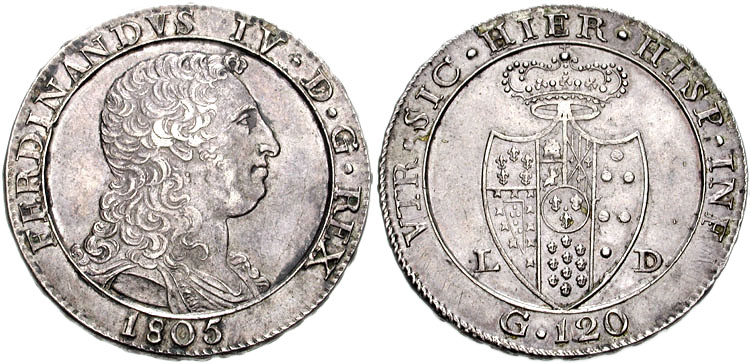|
List Of Monarchs Of The Kingdom Of The Two Sicilies
The following is a list of rulers of the Kingdom of the Two Sicilies, until the fusion into the Kingdom of Italy in 1861. History Joachim Murat was the first king to rule a kingdom called "Two Sicilies" by the Edict of Bayonne, in 1808. Though he controlled the mainland, he never physically controlled the island of Sicily, where his Bourbon rival had fled from Naples. After the Congress of Vienna in 1815, the title of king of Two Sicilies was adopted by Ferdinand IV of Naples in 1816.Romeo R., ''Moments and problems of the Restoration in the Kingdom of the Two Sicilies (1815–1820)'', in ''Southern Italy and Sicily during the Risorgimento'', Naples 1963, pp. 85–96. Under Ferdinand's rule, the Kingdom of Naples and the Kingdom of Sicily were unified. He had previously been king separately of both List of monarchs of Naples, Naples and List of monarchs of Sicily, Sicily. List of kings House of Bourbon-Two Sicilies References See also *List of consorts of the Kingd ... [...More Info...] [...Related Items...] OR: [Wikipedia] [Google] [Baidu] |
Ferdinand IV Of Naples
Ferdinand I (12 January 1751 – 4 January 1825) was the King of the Two Sicilies from 1816, after his restoration following victory in the Napoleonic Wars. Before that he had been, since 1759, Ferdinand IV of the Kingdom of Naples and Ferdinand III of the Kingdom of Sicily. He was also King of Gozo. He was deposed twice from the throne of Naples: once by the revolutionary Parthenopean Republic for six months in 1799 and again by Napoleon in 1805, before being restored in 1816. Ferdinand was the third son of King Charles VII of Naples and V of Sicily by his wife, Maria Amalia of Saxony. On 10 August 1759, Charles succeeded his elder brother, Ferdinand VI, becoming King Charles III of Spain, but treaty provisions made him ineligible to hold all three crowns. On 6 October, he abdicated his Neapolitan and Sicilian titles in favour of his third son, because his eldest son Philip had been excluded from succession due to imbecility and his second son Charles was heir-apparent to t ... [...More Info...] [...Related Items...] OR: [Wikipedia] [Google] [Baidu] |
